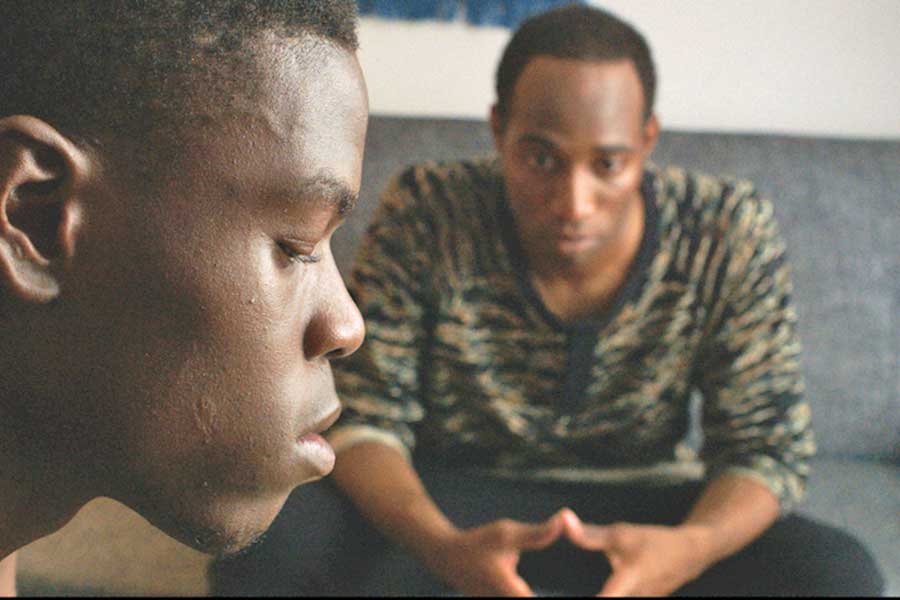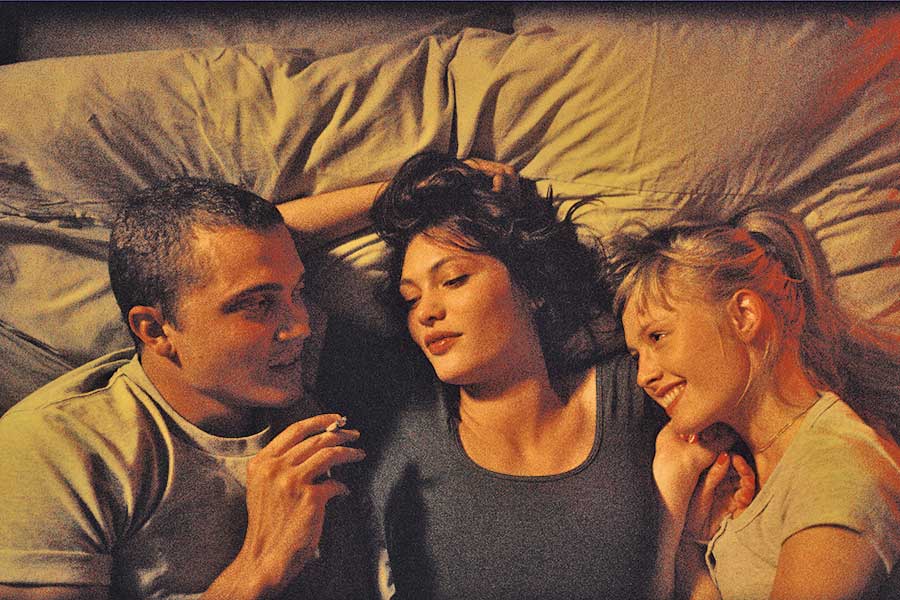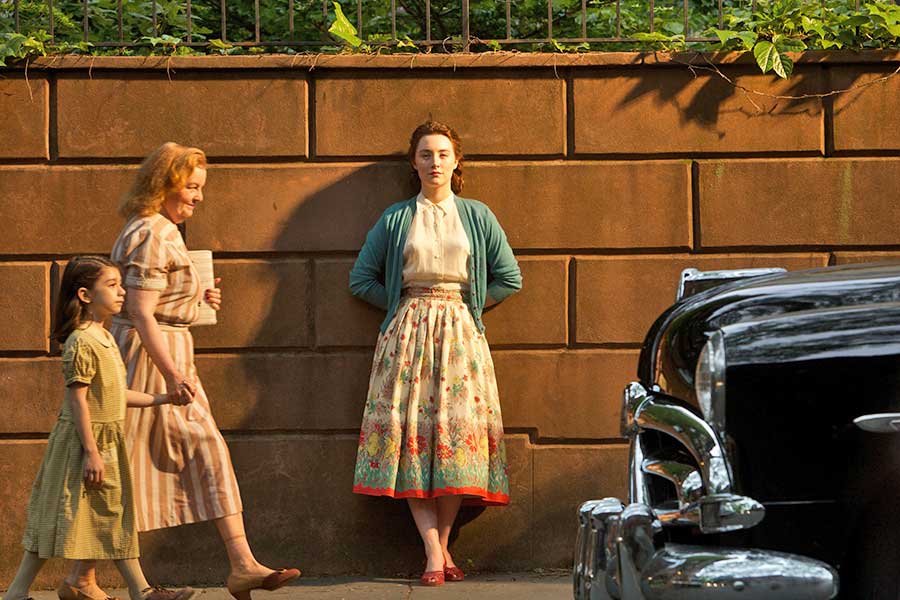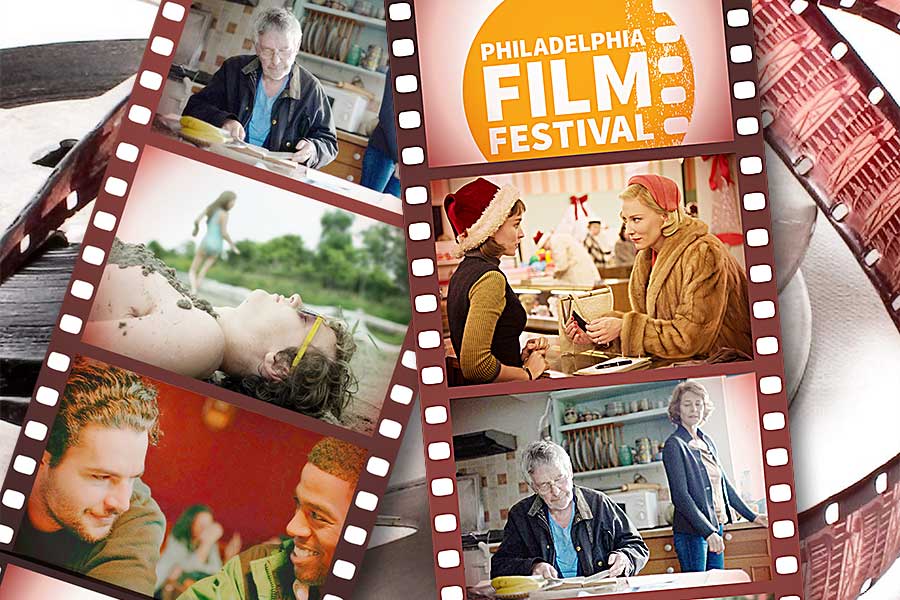The Philadelphia Film Festival is unspooling through Nov. 1 at area theaters, offering moviegoers a sneak peak at some big LGBT theatrical releases, as well as the opportunity to see some rare queer indies that might not otherwise play in Philadelphia.
One must-see is gay director Todd Haynes’ magnificent period drama “Carol.” Adapted from Patricia Highsmith’s classic lesbian novel “The Price of Salt,” this film is a stylish and piercing character study as well as a heart-rending romance about two women. Therese (Rooney Mara), a young shopgirl, and Carol (Cate Blanchett), a married woman, fall in love and come to terms with their sexual identities in the conformist 1950s. How the story plays out — with each woman becoming empowered and working towards securing professional, familial, emotional and sexual happiness — is what makes “Carol” so powerful. The performances by Blanchett and Mara, especially, are knockouts.
Another highlight is “45 Years,” an incredibly affecting drama by out writer/director Andrew Haigh (“Weekend,” “Looking”). Kate (Charlotte Rampling) and Geoff (Tom Courtenay) are forced to re-evaluate their marriage in the week leading up to a milestone wedding anniversary celebration. The catalyst for this is a letter Geoff receives containing news from his past. How the information taints their lives, eating away at both characters in different ways, forms the basis for this drama. When Geoff recounts aspects of the event to Kate, her reaction as she absorbs the details is powerful. Rampling is tremendous here. Her expressions when she is dancing with her husband, looking in a bathroom mirror or discovering something Geoff never told her reveal so much about Kate’s conflicted emotions. Courtenay gives an equally layered performance; a speech he delivers in the film’s end is especially impressive. Haigh, adapting David Constantine’s short story “In Another Country,” employs superb control as a filmmaker, letting the tensions simmer before the quietly devastating ending.
There are several notable American independent films with gay characters at the festival. Chief among them is “Take Me to the River,” writer/director Matt Sobel’s auspicious debut feature about California teen Ryder’s (Logan Miller) awkward family visit with Nebraska relatives. Ryder wants to announce he is gay to his extended family, but his parents, Cindy (Robin Weigert) and Don (Richard Schiff), express their concerns about this. Once on the farm, Ryder stands out; however, it is his interaction with his 9-year-old cousin Molly (Ursula Parker) that causes the most trouble. An unseen incident between them escalates family tensions with Molly’s father Keith (Josh Hamilton) becoming especially angry. “Take Me to the River” is wonderfully discomfiting as the family members try to come to an understanding. Sobel ratchets up the tension as Keith teaches Ryder about using a gun, and when Ryder and Molly go for a swim in the river. As the gay teen, Miller makes his uneasiness palpable, and Hamilton is suitably menacing as Keith, but it is the remarkable, scene-stealing Parker who is the key to the story. Her mercurial performance is what makes “Take Me to the River” so memorable.
Also excellent is the intimate and intense drama “James White,” starring out actor Cynthia Nixon as Gail, who is battling stage-four cancer. Her son, James (Christopher Abbott), cares for her, but he can barely take care of himself. When the film opens, James’ estranged father has just died. Rather than deal with his grief, he and his gay best friend, Nick (the ingratiating Scott Mecudi, who contributed the film’s music), go out, get into a bar fight and pick up one-night stands. Gail insists her restless son grow up, but he is only really good at handling her care — securing her a hospital bed, helping treat her fever or calming her down when “her brain can’t find its way to her mouth.” Nixon is fantastic as the dying mother, and Abbott makes the screw-up (and screwed-up) James sympathetic even when he is behaving very badly. Director Josh Mond uses a handheld camera and exacting close-ups to immerse viewers in the difficult lives of his characters. The effect wrenches real emotional pain; a scene in which James envisions a better life for him and his mom in Paris is staggeringly great.
The title characters of “Naz & Maalik” (Kerwin Johnson, Jr. and Curtiss Cook, Jr., respectively) are African-American Muslim teenagers who are spending the day reselling lottery tickets, saint cards, potions and oils — while stealing kisses — on the streets of Brooklyn. They are grappling with their feelings for each other, having just spent their first night together. The boys are afraid to come out to their families.

They also try to reconcile their faith and sexual identity. As they go about their day, issues of truth and trust arise as they encounter a cop (Bradley Brian Custer), a yuppie (David M. Farrington) and an FBI agent (Annie Grier), who have their eyes on the boys. “Naz & Maalik” features a loose, episodic narrative and clunky symbols — a baseball cap, a gun and a chicken — but the film gets by on the easygoing charm of its two leads. Writer/director Jay Dockendorf’s film is intriguing, if ultimately unsatisfying.

Audacious director Gasper Noé’s hardcore “Love” depicts the intense relationship between Murphy (Karl Glusman of “Stonewall”) and Electra (Aomi Muyock). After the couple has a threesome with Omi (Klara Kristin), their relationship changes. The highly stylized erotic drama, an epic love story, features beaucoup nudity and copious unsimulated sex — as well as an uncomfortable encounter with a transsexual — all in glorious 3-D.
The Philadelphia Film Festival has LGBT representation on screens and behind the scenes in several prestigious films.

The festival will premiere John Crowley’s film version of gay author Colm Toibin’s celebrated novel “Brooklyn” (adapted by Nick Hornby), starring Saoirse Ronan as an Irish immigrant in 1950s New York.
Out actors are also featured in several high-profile films. Rupert Everett plays King George VI in “A Royal Night Out,” Julian Jarrold’s (“Kinky Boots”) romantic period piece about teenage Princesses Elizabeth (Sarah Gadon) and Margaret (Bel Powley) celebrating V.E. Day in 1945 England.
Bisexual actor Saffron Burrows has a supporting role as a mom who allows a teenage boy to move in with her family in the dysfunctional comedy “Quitters.”
Out actor Ben Whishaw has a delicious supporting turn in “The Lobster,” Greek director Yorgos Lanthimos’ futuristic romantic drama. He plays one of several single men at a hotel where guests have 45 days to find a suitable romantic partner or are transformed into an animal of their choosing.
Other films by queer filmmakers, or featuring queer content, include gay British filmmaker Terrence Davies’ drama “Sunset Song,” an adaptation of Lewis Grassic Gibbons’ 1932 novel about life on a Scottish farm; and “Legend,” a biopic about the Kray Twins — the gay Ronnie and straight Reggie — featuring actor Tom Hardy in a double role. The film depicts the twins’ violent actions as Cockney crime lords in the 1960s.
Last but not least, one of the best shorts playing at the fest is gay filmmaker Stephen Dunn’s fabulous “Pop-Up Porno: M4M.” This three-minute film is a bracingly funny story about a gay cruising encounter that has a surprising outcome. While the story (based on a real-life situation) is awkward, it is told in a fun visual format.
For more information on the Philadelphia Film Festival, visit http://filmadelphia.org.
